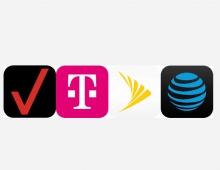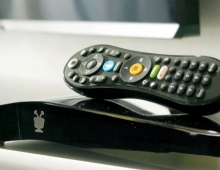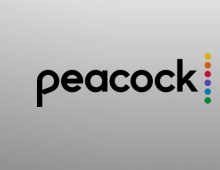
Comcast Wants 'Bill of Rights' for File-sharers and ISPs
Comcast, under federal investigation for interfering with the traffic of its Internet subscribers, said Tuesday it wants to develop a "Bill of Rights and Responsibilities" for file sharing.
The announcement expands on Comcast's new policy toward file-sharing: It said last month that rather than singling out such traffic and blocking some of it, the company will move toward a system that treats all types the same.
The document would codify "best practices" for Internet providers to deal with file-sharing traffic, which can place substantial loads on the networks of cable companies. It would also clarify what controls consumers should have over peer-to-peer (or P2P) file-sharing applications on their computers. Some of these applications are often designed to run in the background, and give the user little insight into what they're doing or how much resources they're using.
Comcast has already said that it is working with BitTorrent Inc., to figure out how ISPs and P2P companies can coexist peacefully.
Also Tuesday, Comcast said it would conduct tests with Pando's software on its network to figure out how to best deal with P2P traffic. Verizon Communications Inc. recently said that by sharing information with Pando, the companies simultaneously sped up file-sharing downloads for Verizon subscribers and reduced the strain on its network. However, file-sharing traffic places different burdens on Comcast and other cable ISPs, where neighbors share data capacity on the local cable lines.
Pando's software differs from the freewheeling, anonymous file-sharing networks that pirates use. It focuses on enabling transfers of large e-mail attachments, like home videos, between friends and family, and on delivering large video files from major media companies like TV networks.
The document would codify "best practices" for Internet providers to deal with file-sharing traffic, which can place substantial loads on the networks of cable companies. It would also clarify what controls consumers should have over peer-to-peer (or P2P) file-sharing applications on their computers. Some of these applications are often designed to run in the background, and give the user little insight into what they're doing or how much resources they're using.
Comcast has already said that it is working with BitTorrent Inc., to figure out how ISPs and P2P companies can coexist peacefully.
Also Tuesday, Comcast said it would conduct tests with Pando's software on its network to figure out how to best deal with P2P traffic. Verizon Communications Inc. recently said that by sharing information with Pando, the companies simultaneously sped up file-sharing downloads for Verizon subscribers and reduced the strain on its network. However, file-sharing traffic places different burdens on Comcast and other cable ISPs, where neighbors share data capacity on the local cable lines.
Pando's software differs from the freewheeling, anonymous file-sharing networks that pirates use. It focuses on enabling transfers of large e-mail attachments, like home videos, between friends and family, and on delivering large video files from major media companies like TV networks.





















